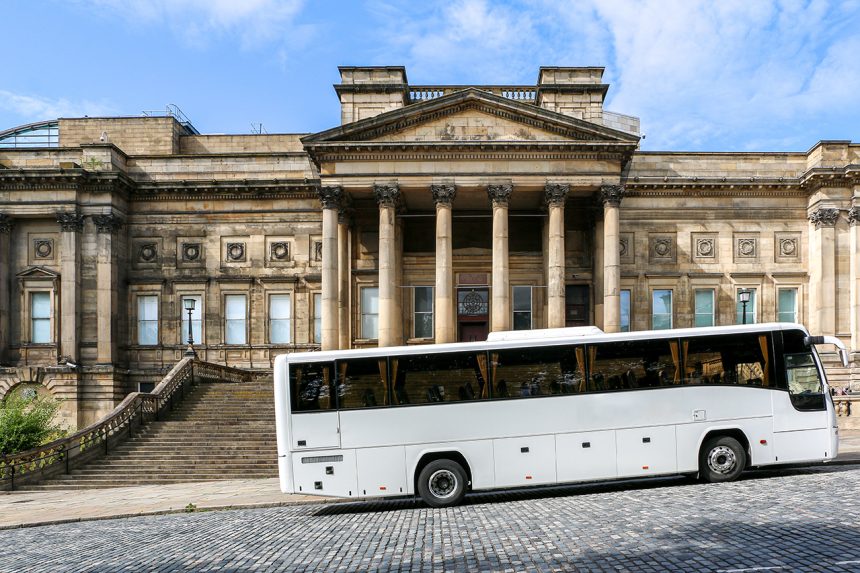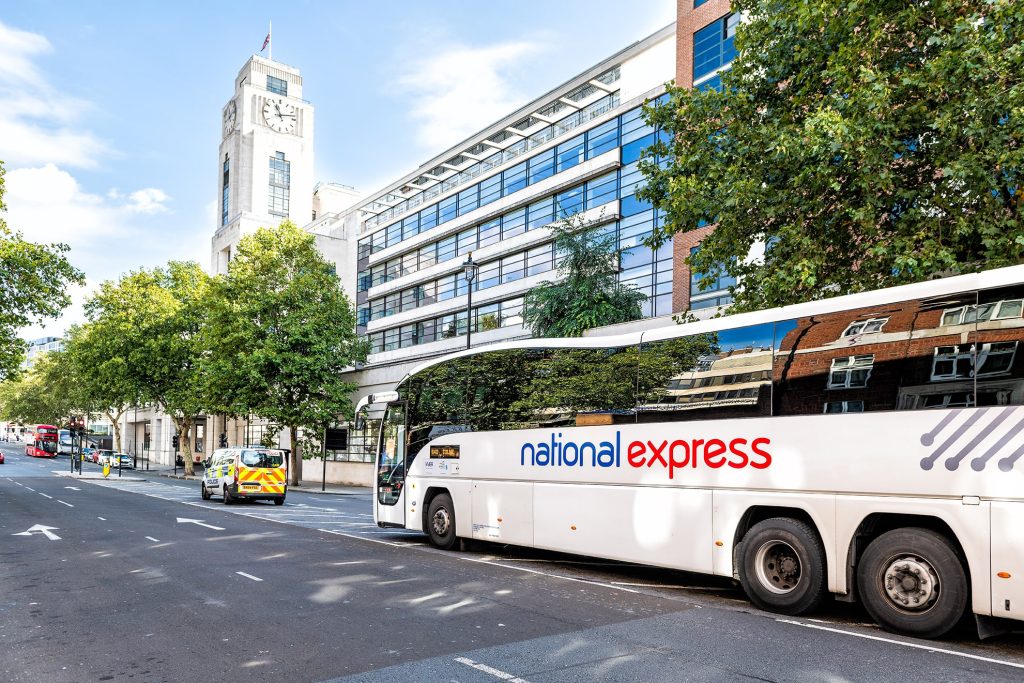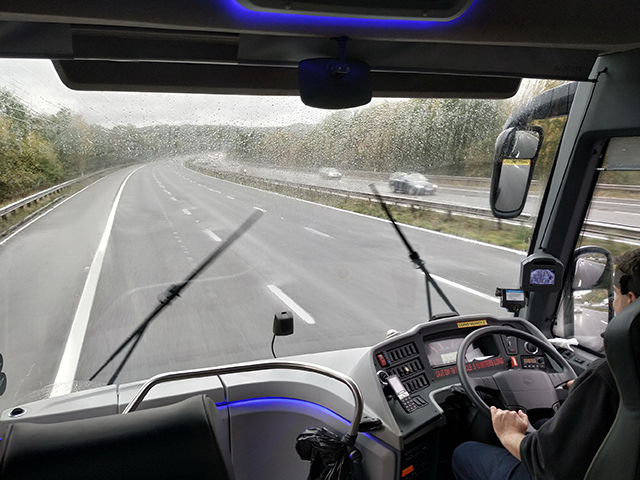At the close of 2024 routeone heard concerns from one independent operator that rates were struggling to keep up with the cost of staying in business.
Those comments have since been echoed by others in the industry, with concerns running the gamut from high vehicle purchase and lease prices, pressure on businesses from National Insurance (NI) contribution increases, driver wages, fuel prices, and inflation.
The outlook, as it is with many other parts of the economy, looks gloomy — but routeone hears that, despite the challenges, there are still opportunities where the coach industry can thrive.
Tourism and corporate hire safe bets?

Now, despite a recent boom time following the pandemic years, he argues the industry has returned to a position where rates have peaked, and costs are cheap relative to services offered. “There was a point after COVID-19 when people were managing to charge more. Now that market has gone, the demand that had built up post-COVID is gone, and we have returned to a normal market,” he says. “Operators have invested, but now we are facing an economy where many people do not have money to spend.”
And yet coach does not seem to be struggling for work. After all, why else would so many groups and investors be hedging their bets on it? The challenges, it seems, come down to region, and type of work, with some areas more cutthroat than others.
“Certainly, the private hire market will become more competitive,” Steve says. “We see evidence particularly in the school contract market of suicidal pricing in order to retain contracts and even get new ones, which suggests to me that where private hire was a good accompaniment to a school contract, suddenly that private hire is not around as much as it was — therefore more school contracts may be taken on to keep the bread and butter flowing.”
Thoughts fly to many areas where the topic of home-to-school transport is concerned. Long-term, higher inflation rates are expected to squeeze public expenditure further, and Steve anticipates the potential for local authorities with large budgets for home-to-school transport — he points to North Yorkshire as an example, which spends more than £50 million each year on such schemes — to reduce provision, and where bus routes are franchised, lay on more regular enhanced bus services for schoolchildren.
“That’s the reason a lot of coach home-to-school services exist, because there aren’t suitable bus routes. If [local authorities] are going to expand the bus network they might be tempted to use some of the funding they are presently using for standalone coach contracts to enhance their offer as far as franchised buses are concerned.”
In what makes a perfect storm, Steve also sounds a warning for those on fixed-rate outgoings. When renewal comes, it will likely be at a higher rate than they are currently paying.
He therefore suggests a rethink is needed on how operators judge success. “I still think many in the coach industry don’t know what it costs to operate and they work on historic rates,” he says. “They can see that increased investment in vehicles and driver wages which has been necessary is starting to cause pain in terms of the margins they are able to earn. Turnover is vanity, profit is sanity. Profit is where investment comes from.”
In some respects, COVID-19 did bring things forward, particularly as far as the cost of hiring a coach is concerned. But Steve believes a customer mentality remains that “coach is not a necessity”, while a bus is. That means operators will have to work hard in some areas. One example is school hires for field trips, which Steve feels will start to reduce. “As for private hire — given there was a bubble after COVID, and people wanted to get out, the money didn’t matter,” he adds. “People had the money. But that was never going to last forever. There were fewer operators in the field. Competition dried up, demand increased. The perfect scenario to improve your bottom line.”
The future, Steve argues, will be in express coaches, holidays and day trips, the areas perceived as good value and in-demand. “We’ve had a boom, and while this is not a bust, there has been consolidation and businesses will have to work harder. It’s a case now of pulling your horns in and riding out an economic storm. Quality is going to be more important than ever. You can justify high prices by improving quality in the vehicle and driver standards.”
Long-term effects of underselling
In a letter addressed to routeone in December last year, Sam Archer, Managing Director of Archway Travel, echoed the suggestion that coach rates had peaked, and 2025 looked set to be a year of pressure. Archway’s coach business runs alongside its haulage enterprise, and so, internally, the two are compared side by side. Where costs are more easily passed on within haulage, Sam’s view is that rates across the coach sector are stuck in a race to the bottom — frequently driven down by the drive for cheaper tenders and restricted local authority and school budgets. That is compounded by ever increasing requirements for cleaner, newer, accessible vehicles, investment in which is frequently not justified by the rates paid for work. Where private schools have historically paid higher, the removal of the VAT exemption on tuition fees in April means a paring back of coach hires is anticipated there, too.
Archway is riding out the storm by branching out into service work. It has a guaranteed contract with the local authorities subject to a price increase every year. But the general trend has Sam concerned for the future of the sector – in particular its young drivers: “We are selling a multi-million pound industry and come April our drivers are looking to be paid close to minimum wage. How, then, can we encourage young drivers into our industry? In 10 years, we will be looking at a massive shortage.”
With the known risks that come with highly competitive contracts, Sam urges government to establish as a minimum a quality recognition scheme that ensures high standards when schools put out tenders for home-to-school work. That could function akin to the Fleet Operator Recognition Scheme (FORS) gold-silver-bronze rating, where cleaner vehicles and higher wages for drivers raise operators’ ranks. “There is of course nothing to stop schools working with premium operators, and a lot do,” he counters, “but there will always be that percentage that wants the cheapest price. A FORS-style system could be a way for operators to see real benefits from investment in KPIs and better systems.”
The right way of thinking
Stephen Telling, President of the UK Coach Operators Association, acknowledges the concerns around the devaluation of coach rates. Like Steve Whiteway, he places a great deal of emphasis on the variety of factors affecting the wider economy, as well as supply-and-demand within the vehicle market, where long lead times are keeping costs high.
Like Steve, he notes that bookings are strong for coach holidays, and corporate hire is buoyant. Those markets are growing. But chartering and home-to-school transport has, he says, peaked, and is “turning around again”. He also notes that general cost increases are to blame — in some areas, wages alone have gone up as much as 25% in the last three years, and operators are finding it difficult to source new vehicles.
But he also says good competition is not something to be frightened of. “It always makes people think better. But what does concern me is that we do not want a race to the bottom. We have to be careful of that. The coach operation is a jigsaw puzzle; we need to understand how all the constituent parts fit together.”
While Stephen disagrees that we have reached that point across the industry, he admits that there are pockets of it. That level of competition comes down to the number of vehicles and products on sale. “For our location in Surrey, within a 20- mile radius there could be some 50 public schools, and every one of them has home-to-school transport and is in need of an operator to do it. You look for the infill in the middle. That’s what makes the job work. But I do think a lot of the operators now are being very cost conscious. Because cost is absolutely paramount.”
Will all these pressures lead to a shift in what operators rely upon to make up the ‘bread and butter’ of their work? That is an imponderable. Stephen argues a lot now hinges on moves made by the Department for Transport over the next year. “There is a big milestone in July 2026 if it decides to go no further with derogations from PSVAR, for instance,” he says. “If all vehicles have to comply fully, that market is dead. The industry cannot supply the vehicles to do the job. Equally, when it comes to emissions, the price of new vehicles cannot be justified even with a 20 year lifespan. There must be a road map on the journey to zero-emission.”
But Stephen does acknowledge that the current situation with rates is part of the constant change the coach industry faces. “Life is a constant changing world,” he says. “The big issue is how many will be able to grow their business sufficiently. The coach industry has always been incredibly clever when these situations arise.
“We need to have succinct and proper discussions on the issues that affect us. There is a massive opportunity for our industry to convince people we have the right vehicles for the right job, and there will always be opportunities for the right-minded person with the right form of thinking.”





























